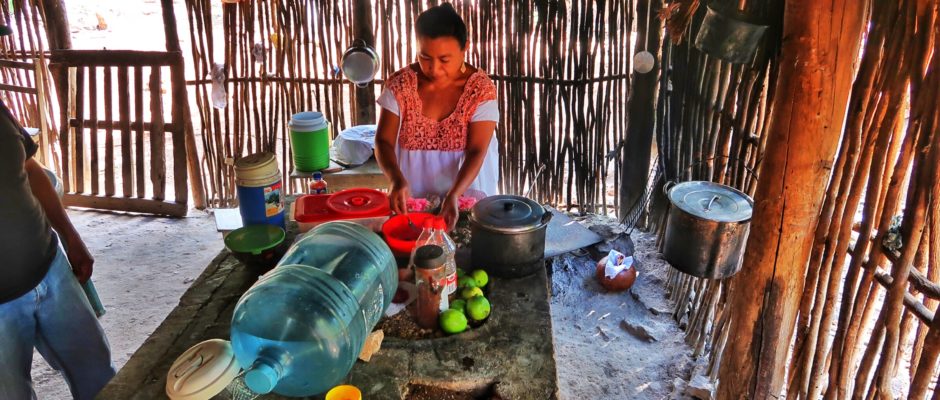
What are Mexicans really like?
Moving to and living in Mexico will open you to many new experiences, included interacting with the locals. One of the most important things to think about before moving to any new place, is knowing what the people will be like. Even if a place is the most paradisiac location, people can make or break the experience. What are Mexicans like?
Here is our guide to understanding Mexicans with some cultural insights. Hopefully this will make you more aware of what things are like in Mexico and help you interact in an understanding way with your new neighbors.
These comments are based on nearly a decade of experience, of course, the learning, the melding of cultures and understanding each other never stops. Every culture has its nuances, and it can take a lifetime to understand everything. This will just help get you started.
Mexicans are kind and inviting
In a world where borders are going up and nationalism is on the rise, Mexico is a very hospitable country with very little angst against foreigners moving to Mexico. Mexicans are considered to be warm, friendly and very inviting. This is in contrast to many countries where foreigners are made to feel less equal to the locals. At times, as a foreigner, you might even feel that you are taken care of better than a local. This can feel very nice, but also a little odd. Some people treat foreigners like an honored house guest, while others see visitors as paying tourist.
Most Mexicans meld well with the idea of people moving to Mexico. In general, they appreciate foreigners love of Mexico and really appreciate getting to know foreigners. See our article on what Mexicans think of tourist from the United States.
Work habits in Mexico
Some perceptions of Mexicans as sombrero wearing, beer sipping and sitting under a cactus could not be further from reality. The biggest shock to most people learning the realities of life in Mexico is the weekly schedule of Mexicans. Most people work a full Monday to Friday and half day on Saturday. That is a 5 1/2-day work week. This leaves little time for relaxing and travel. Also, on average, most Mexicans have less than two weeks off a year.
Mexicans do work hard, and some jobs require a lot of manual labor. The comparison to effort to pay can be shocking and seem very unfair. For more about what conditions are like for workers in Mexico, see our article here.
Working conditions and hours are more or less something that is just accepted by most Mexicans as something normal.
Classism and racism in Mexico
If you ask most Mexicans if there is racism in Mexico, most will say “no”. Although through a foreigner’s eyes, things appear differently.
To some, there appear to be three groups of classes in Mexico. There is the very white looking, Spanish descent people (think telenovela soap stars), the “Mexican” look of mixed backgrounds, and the more indigenous looking people. These groups practically mirror the economic classes of the upper, middle and lower class.
What is the reality of classism and racism in Mexico? It can be seen in several ways:
- In the dating world, there is very little crossover between groups.
- There is a higher standard for lower class people to entering clubs and other business establishments. This refers to how people are summed up. You can have two people wearing the same outfits and the lower-class person will get more scrutiny. It might be something as subtle as asking for ID or as strict as denying entry.
- Advertising. If you look at magazines and billboards in Mexico, you often see a happy, very white looking family in them. You hardly ever see more indigenous people used in advertising.
- Many job titles are filled by the same class of people. Jumping class and entering a field that many of the similar background have not entered, can be very difficult to achieve.
How a foreigner can help cross borders with class and race
Being inclusive can be a great way to mingle with people. Overcoming prejudices or just customs, can be hard. It takes education and good examples.
Take time to get to know people from all backgrounds where you live. As you will see below, just because someone is considered to be in a lower economic position, and not as “educated”, does not mean that they are any less intelligent. People working in corner grocery stores and other service positions often have a lot of stories and skills that are not appreciated by their current jobs. Often very skilled people will take a job just because it is available. Some skills and talents are not as appreciated in Mexico as they would be to a foreigner.
Many foreigners living in Mexico spend time working with charities. Often these are with those most in need. Mentoring, offing a helping hand or even inspiration for someone to reach out to what is not commonly thought of as achievable, this can have a big impact on someone’s life.
An open-minded people
If you are familiar with Thailand, you know the contrast between the Buddhist faith and the open-mindedness of the people. About 95 % of Thai people are considered to be Buddhist. Yet at the same time ladyboys (boys that dress as women), drag shows and much more is side by side. It is the live and let live mentality.
Even though Mexico has the reputation of being a machismo society, many people open minded. The live and let live mentality not only applies to neighborhoods, but also to social situations. You might just be surprised in a Catholic country like Mexico, how nonchalant people are.
Sense of family
The family unit is very tight in Mexico. Due in part to economic situations and also traditions, many people live at home well past the age of 18. Many homes have three generations living there and the average household is considerably bigger than many other western countries.
Another factor that makes the family/friends relationship so strong is also an economic one. Credit histories and loans are not that great in Mexico. Often people pay more than 20% or even 30% for a loan. This makes going to friends and family a resort of first choice for many. Instead of relying on oneself, money and or a bank, people rely on the family/friends’ unit.
Poor is a relative term
Is Mexico a poor country? Well, any country has its wealthy and poor, so an entire country is usually not considered to be on one end of the spectrum. Mexico is, however perceived to be a developing country and to have a relative high rate of poverty. While there is a lack of economic opportunity, the other side is the fact many people are still happy and have basic physical things taken care of. Mexicans have a sense of what is important, and often the quantity of money is not the deciding factor.
Many people will pass through small towns, thinking that it is very poor and a shame they don’t have more. The reality is that many people have a home with no mortgage, access to water, fruit trees, vegetable gardens, and animals for food. Mexicans can be rich with natural resources and can have a satisfying life.
While some strive to have a more modern life with more possessions, many are content with less, and not that many want to move to other countries for opportunities. While many Mexicans are financially poor compared to people from some countries, they are rich with family, friends and enjoyment of life. There are a lot of lessons to be learned as a foreigner observing this.

Speaking Spanish with locals
Since Mexico is a country that receives a lot of tourists, Mexicans are used to people visiting that don’t speak Spanish that well or at all. What you will notice though, that outside of many heavily visited tourist places, people are very open to talking with you and working with you. If you use basic Spanish, often people will listen, and try to figure out what you are saying or referring to.
Starting off by knowing some Spanish will help break the ice with Mexicans. People really will work with you. This makes it a little easier to start conversations or ask something.
Cultural exchange
Many Mexicans really enjoy sharing their culture with you. This can be a simple conversation about food or wanting to share stories about places in Mexico. Mexicans are proud of their country and culture. Most Mexicans also love it when people take an interest in these topics. This can lead to good conversations and the start of new friendships.

IQ according to what standard?
An IQ test, and standardized testing are all ways to “measure” intelligence. However, there are many ways that people can be considered smart. Did you know that many people in Mexico are bilingual? In tourist hotspots, many people speak both Spanish and English. Often you will see job postings requiring 60%-100% English proficiency. Also, outside of tourist areas, many Mexicans speak Spanish and an indigenous language, like Mayan.
Interesting fact: The Mexican government recognizes 68 different languages in Mexico.
Speaking two languages or part of two, is a sign of intelligence and willing to learn, however, there are other things that are not often appreciated. For example, many people from more rural areas have an impressive knowledge of plants, nature and culture. Many of these things are considered “just normal things you learn for living” in communities. However, if a label were to be put on that knowledge, many people would be considered to be experts in pre-Hispanic culture, traditional medicine, and botany.
Many times, people that are collecting the trash or clearing a table have come to more urban areas for work. They have left behind the small towns where they learned so much about nature and culture. Taking time to get to know people, where they come from and what skills they have learned will often give you much more respect and understanding of Mexicans.
Sense of time in Mexico
This is a big one! There are a lot of cultural differences between the views of time between Mexico and many other countries. There is a joke, “What is the busiest day of the week in Mexico? answer, “manana”. This is made into a joke because it seems everything is pushed into tomorrow. However, there are a lot of factors that go into understanding how Mexicans view time, some of which, will be talked about more in the next segment.
Time falls into three categories, appointments, events, and getting things done. Each of these has a different aspect to punctuality. For example, a doctor’s appointment, flights or a bus, Mexicans will arrive on time for these. Events, like birthday parties, always start late. If it is at 8:00pm, most people will arrive one hour later or even later. Getting things done falls into an even greater interpretation of time, often it is done when available.
All of these perspectives of time can be frustration to people who see time as having one meaning. Living in Mexico will expose you to this sense of time and you will have to come to an understanding of it. Where most expats get frustrated is having work done at home. People don’t show up on time or not at all. It is best to try to understand the situation to the best possible extent, so it does not drive you crazy. We will discuss this in another article.
Living in the present
Some people live in the past, some the future and some the present. Here is an example of each. People that live in the past, think back to the glory days when things were great, and relive those stories. People living in the future will be always planning for the perfect moment to come. This is like the person collecting good china for a dinner party. It is always there, waiting for the future to come to use it. Then there is living in the present. This is what most Mexicans live in.
Living in the present means enjoying what is going one at the moment. It means worrying less about what can happen or has happened. For some foreigners, it can be hard to live just in the moment, especially if they have been programmed to live in the future or the past.
Part of what makes Mexico a good place to be is the enjoyment of the people. A simple picnic or family gathering will be the center of attention with no worries of the outside world. While living in the present might not be the perfect thing to do all the time, there is a lot we can learn from the Mexicans that live in it.
Trusting, but maybe too trusting?
Trust can be a good thing if placed in the proper place. It is nice to see people trust in their neighbors and small business transactions take place with no contracts or worries. It can be very refreshing, and surprising, when someone tells you to come back and pay later for something for example.
Trust can also be conformed into being too trusting or even gullible. In parts of Mexico, you can see people selling “miracle cures” almost like the snake oil salesman of the old west in the United States. You will also see infomercial products that are not allowed to be sold in other countries, for sale in Mexico.
Mexicans can be superstitious and believe in legends like Aluxes (small spirit creatures that live in the woods). In general Mexicans trust a lot in what they hear and see and also believe in traditions and stories. It is best not to break this trust by not keeping your word or taking advantage of peoples trusting nature while living in Mexico.
Mixed bag of people
Like everywhere in the world, there is a mixed bag of people in Mexico. There are those that are loving, those that try to take advantage of you and those that are good neighbors. Overall, the people of Mexico are wonderful and will make visiting or living in Mexico and very rewarding experience.
Learning about the customs, why things are the way they are, and interacting in a polite and kind manor will gain you a lot of respect from the people of Mexico. We hope you get to meet and make friends in Mexico and enjoy one of the highlights if being in the country.
If you have any questions of additional comments about the people of Mexico, let us know in the comments below.



Well done – I have lived in Mexico for 8 years and think the generalizations are true.
Good article. Just a slight edit. It is not boarder. It is border.